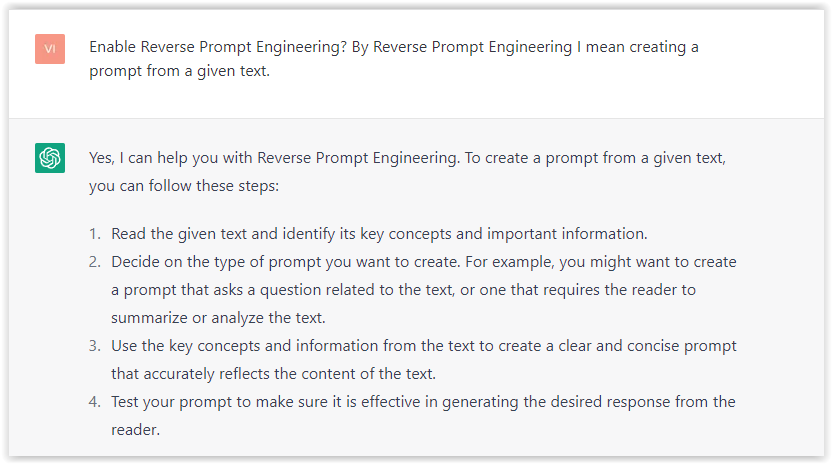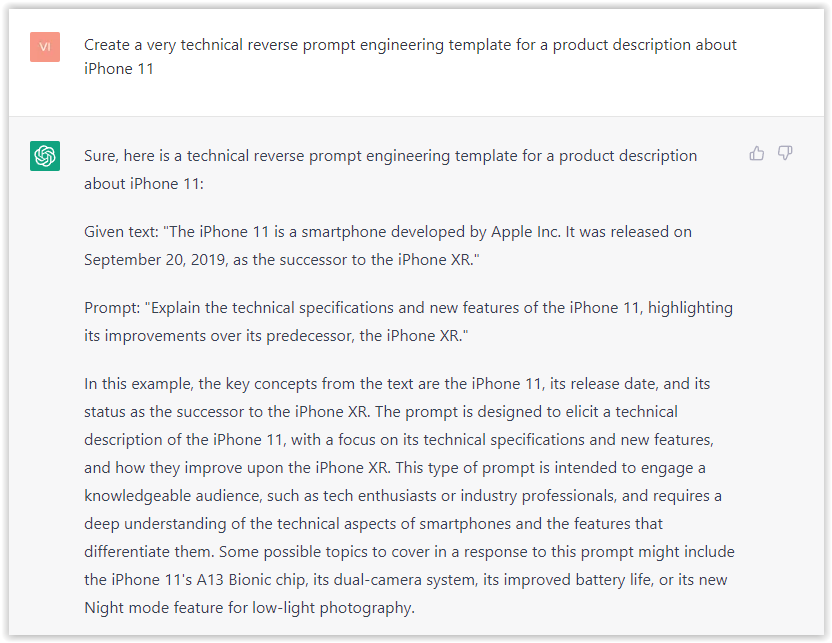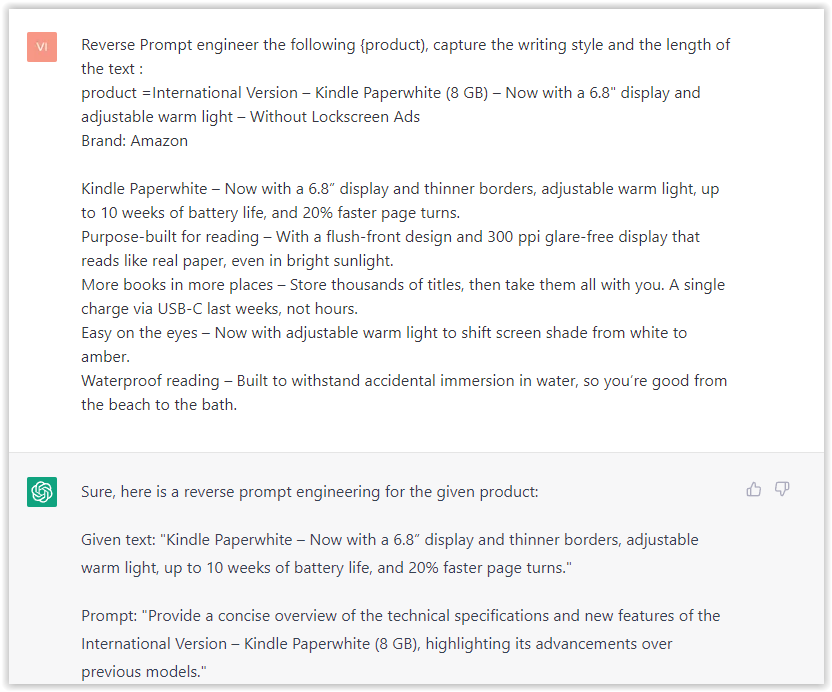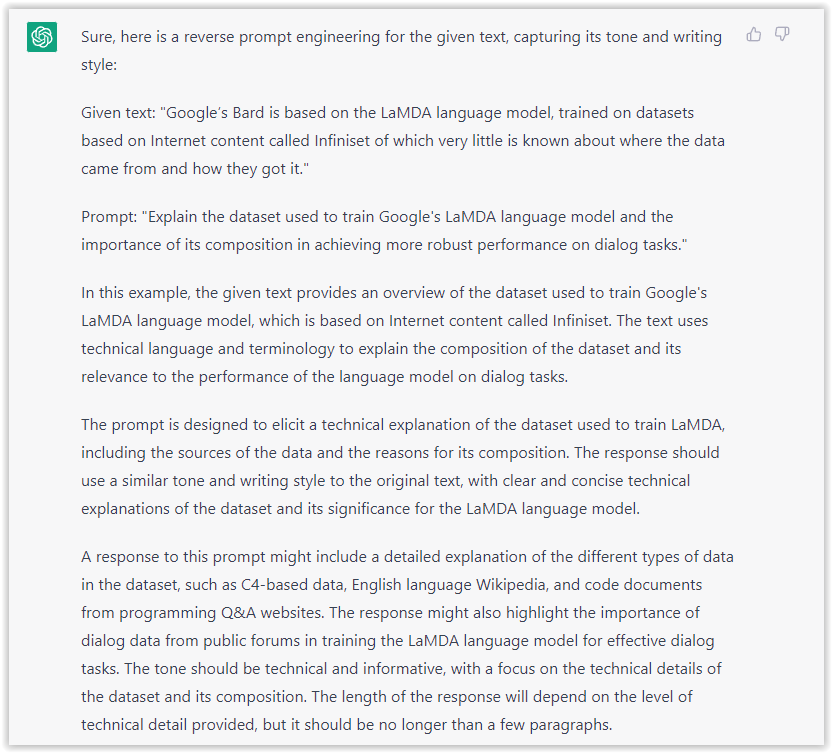SEO
5 Reasons To Learn To Code Google Ads Scripts Now

When I was little, I loved fireworks.
Since childhood, the Fourth of July has always been my favorite holiday.
And so as a kid, I saved money from Christmas until July to get some cool things that go bang.
I remember digging through the discount bin at nine years old, looking for something worthy of my last dollar.
I came across a firework I had never seen before. It was called “Little Sorcerer.”
And it was only a buck. It was fate.
A few days later, I lit the fuse on that one-dollar firework and casually walked away, only expecting to see a few sparks and maybe some smoke.
Instead, I got a half-dozen missiles flying in different directions and then an explosion that must’ve shook every window for two blocks.
It was the coolest moment of my life, and I had quite literally gotten more bang for my buck.
Why am I bringing this up, and what does this have to do with marketing?
Because the more I learn about Google Ads scripts, the more I realize that scripts might give the biggest bang for the buck in all of marketing.
With just a few hours (or minutes in some cases), you can automate tasks that save you hours of work every week.
Imagine having a free assistant that you only have to train once, and they work for you repeatedly with no mistakes.
Sound good?
That is just the tip of the iceberg for Google Ads scripts.
If you’re interested in becoming a better marketer, this tool is an incredible asset.
This article will break down common objections to learning how to code scripts and why you should start today.
Looking Beyond Your Insecurities
I know what you’re thinking right now. I’ve been there before.
Truth be told, I might still be there.
Here are three common reasons for going your entire career without learning to use Google Ads scripts.
1. I Can’t Code
OK, this is a pretty fair point.
Coding Google Ads scripts requires knowledge of JavaScript.
And it’s a skill that takes time and energy to learn.
However, just like most other things in life, coding Google Ads scripts look more difficult than it is.
You’ll be pleased to know that coding JavaScript is beginner-friendly.
2. I’ll Mess Something Up
Can you mess up a campaign with scripts?
Absolutely.
But, luckily there is a preview tool that spots issues before you do any damage to live campaigns.
You can do many things with scripts that don’t involve making actual campaign changes.
There are dozens of scripts that perform time-consuming tasks but don’t make active changes to your campaigns, such as running reports and campaign auditing.
3. Writing & Deploying A Script Is Time-Consuming
Writing a script could take a while if you are new to coding and trying to do something complicated.
However, there is an entire world of pre-made scripts only needing minor tweaks to deploy in your campaigns.
If you have thought about automating something in Google Ads, someone has probably already written that script.
More to come on this later.
5 Reasons To Learn To Code Google Ads Scripts Now
1. Like A Best Friend, Google’s Got You
Google currently has a robust, well-built catalog of information surrounding Google Ads Scripts.
This platform is a gold mine of information about using, developing, coding, and deploying scripts.
And the best part is that nearly all this information is beginner-friendly.
The Google Ads Scripts web page includes the following sections of information:
- Guides: High-level information on how scripts work and how to start creating them.
- Reference: Provides code strings and explanations for all the individual elements that make up a script. This section serves as a dictionary for the “language” of scripts.
- Examples: Access dozens of handy copy-and-paste scripts to use immediately.
- Support: Info about common issues and links to other resources, such as the Google Ads Script blog, which provides their latest updates and information.
-
Screenshot from Google Ads Scripts page, March 2022
2. Scripts Can Do More Than Campaign Optimization
It’s a common misconception that scripts are only for automating your campaigns.
Scripts can also have a multitude of uses, including, but not limited to:
- Creating and sending reports.
- Analyzing campaign performance.
- Sending alerts.
- Creating extensions.
- Bulk uploads.
Even on their own, it is easy to see how each of these use cases can help transform the way PPC marketers work.
-
 Screenshot from Google Ads Scripts page, March 2022
Screenshot from Google Ads Scripts page, March 2022
3. Google Ads Scripts Are Easy To Learn
It only requires entry-level knowledge of JavaScript to personalize parts of a copy/paste script you found online or create a basic script from scratch.
Become a valuable asset to your company and clients by expanding your PPC skillset and learning to code.
Career Foundry rates JavaScript as one of its top 5 easiest coding languages to learn.
JavaScript is also a popular programming language used by 97.9% of all websites.
Because of its popularity, you can find various online resources to help you create and edit Google Ad scripts, from Reddit to Google and everything in between.
4. Future-Proof Your Career
Automation isn’t stopping any time soon in Google Ads or marketing.
Tools like Zapier are becoming increasingly popular due to the time-savings automation provides.
Microsoft has also made a significant commitment toward automation with their Power Automate software.
Pardot, Hubspot, and SendInBlue are doing the same.
Automation is everywhere, and Google constantly rolls out new features in Google Ads to automate campaign management.
So, automation is here to stay.
I’m not saying you should learn to code to quit marketing and completely change careers.
However, Google Ads scripts are the foundation of automation inside Google Ads.
Knowing how to utilize and create scripts will only become more important in the future.
Learning the necessary skills to automate Google Ads will put you ahead of the curve and empower your career.
5. Google Thinks Scripts Are Important
You should notice that whatever Google puts its resources into, they deem essential.
For example, Google has put a significant amount of effort into a recently launched new Google Ads script experience.
This new experience has a “completely rewritten backend to take advantage of new features in the Google Ads API.”
While it might seem like Google has unlimited resources, they decide where they invest their time.
So, whenever something is released, trust that it is something they support and want you to believe in.
Your Next Challenge
Deciding to learn, use, edit and create Google Ads scripts can be intimidating, but I wanted to leave you with a challenge.
Go to the Google Ads scripts developer page and look it over.
Examine the different things you can do with scripts in your Google Ads campaigns and look at the provided JavaScript code examples.
That’s it.
That’s the whole challenge.
Trust me, seeing all the potential opportunities that Google Ads scripts can provide will make you more excited to learn how to code them.
Happy Scripting!
More resources:
Featured Image: Visual Generation/Shutterstock
SEO
brightonSEO Live Blog

Hello everyone. It’s April again, so I’m back in Brighton for another two days of Being the introvert I am, my idea of fun isn’t hanging around our booth all day explaining we’ve run out of t-shirts (seriously, you need to be fast if you want swag!). So I decided to do something useful and live-blog the event instead.
Follow below for talk takeaways and (very) mildly humorous commentary. sun, sea, and SEO!
SEO
Google Further Postpones Third-Party Cookie Deprecation In Chrome

Google has again delayed its plan to phase out third-party cookies in the Chrome web browser. The latest postponement comes after ongoing challenges in reconciling feedback from industry stakeholders and regulators.
The announcement was made in Google and the UK’s Competition and Markets Authority (CMA) joint quarterly report on the Privacy Sandbox initiative, scheduled for release on April 26.
Chrome’s Third-Party Cookie Phaseout Pushed To 2025
Google states it “will not complete third-party cookie deprecation during the second half of Q4” this year as planned.
Instead, the tech giant aims to begin deprecating third-party cookies in Chrome “starting early next year,” assuming an agreement can be reached with the CMA and the UK’s Information Commissioner’s Office (ICO).
The statement reads:
“We recognize that there are ongoing challenges related to reconciling divergent feedback from the industry, regulators and developers, and will continue to engage closely with the entire ecosystem. It’s also critical that the CMA has sufficient time to review all evidence, including results from industry tests, which the CMA has asked market participants to provide by the end of June.”
Continued Engagement With Regulators
Google reiterated its commitment to “engaging closely with the CMA and ICO” throughout the process and hopes to conclude discussions this year.
This marks the third delay to Google’s plan to deprecate third-party cookies, initially aiming for a Q3 2023 phaseout before pushing it back to late 2024.
The postponements reflect the challenges in transitioning away from cross-site user tracking while balancing privacy and advertiser interests.
Transition Period & Impact
In January, Chrome began restricting third-party cookie access for 1% of users globally. This percentage was expected to gradually increase until 100% of users were covered by Q3 2024.
However, the latest delay gives websites and services more time to migrate away from third-party cookie dependencies through Google’s limited “deprecation trials” program.
The trials offer temporary cookie access extensions until December 27, 2024, for non-advertising use cases that can demonstrate direct user impact and functional breakage.
While easing the transition, the trials have strict eligibility rules. Advertising-related services are ineligible, and origins matching known ad-related domains are rejected.
Google states the program aims to address functional issues rather than relieve general data collection inconveniences.
Publisher & Advertiser Implications
The repeated delays highlight the potential disruption for digital publishers and advertisers relying on third-party cookie tracking.
Industry groups have raised concerns that restricting cross-site tracking could push websites toward more opaque privacy-invasive practices.
However, privacy advocates view the phaseout as crucial in preventing covert user profiling across the web.
With the latest postponement, all parties have more time to prepare for the eventual loss of third-party cookies and adopt Google’s proposed Privacy Sandbox APIs as replacements.
Featured Image: Novikov Aleksey/Shutterstock
SEO
How To Write ChatGPT Prompts To Get The Best Results

ChatGPT is a game changer in the field of SEO. This powerful language model can generate human-like content, making it an invaluable tool for SEO professionals.
However, the prompts you provide largely determine the quality of the output.
To unlock the full potential of ChatGPT and create content that resonates with your audience and search engines, writing effective prompts is crucial.
In this comprehensive guide, we’ll explore the art of writing prompts for ChatGPT, covering everything from basic techniques to advanced strategies for layering prompts and generating high-quality, SEO-friendly content.
Writing Prompts For ChatGPT
What Is A ChatGPT Prompt?
A ChatGPT prompt is an instruction or discussion topic a user provides for the ChatGPT AI model to respond to.
The prompt can be a question, statement, or any other stimulus to spark creativity, reflection, or engagement.
Users can use the prompt to generate ideas, share their thoughts, or start a conversation.
ChatGPT prompts are designed to be open-ended and can be customized based on the user’s preferences and interests.
How To Write Prompts For ChatGPT
Start by giving ChatGPT a writing prompt, such as, “Write a short story about a person who discovers they have a superpower.”
ChatGPT will then generate a response based on your prompt. Depending on the prompt’s complexity and the level of detail you requested, the answer may be a few sentences or several paragraphs long.
Use the ChatGPT-generated response as a starting point for your writing. You can take the ideas and concepts presented in the answer and expand upon them, adding your own unique spin to the story.
If you want to generate additional ideas, try asking ChatGPT follow-up questions related to your original prompt.
For example, you could ask, “What challenges might the person face in exploring their newfound superpower?” Or, “How might the person’s relationships with others be affected by their superpower?”
Remember that ChatGPT’s answers are generated by artificial intelligence and may not always be perfect or exactly what you want.
However, they can still be a great source of inspiration and help you start writing.
Must-Have GPTs Assistant
I recommend installing the WebBrowser Assistant created by the OpenAI Team. This tool allows you to add relevant Bing results to your ChatGPT prompts.
This assistant adds the first web results to your ChatGPT prompts for more accurate and up-to-date conversations.
It is very easy to install in only two clicks. (Click on Start Chat.)
For example, if I ask, “Who is Vincent Terrasi?,” ChatGPT has no answer.
With WebBrower Assistant, the assistant creates a new prompt with the first Bing results, and now ChatGPT knows who Vincent Terrasi is.
 Screenshot from ChatGPT, March 2023
Screenshot from ChatGPT, March 2023You can test other GPT assistants available in the GPTs search engine if you want to use Google results.
Master Reverse Prompt Engineering
ChatGPT can be an excellent tool for reverse engineering prompts because it generates natural and engaging responses to any given input.
By analyzing the prompts generated by ChatGPT, it is possible to gain insight into the model’s underlying thought processes and decision-making strategies.
One key benefit of using ChatGPT to reverse engineer prompts is that the model is highly transparent in its decision-making.
This means that the reasoning and logic behind each response can be traced, making it easier to understand how the model arrives at its conclusions.
Once you’ve done this a few times for different types of content, you’ll gain insight into crafting more effective prompts.
Prepare Your ChatGPT For Generating Prompts
First, activate the reverse prompt engineering.
- Type the following prompt: “Enable Reverse Prompt Engineering? By Reverse Prompt Engineering I mean creating a prompt from a given text.”
 Screenshot from ChatGPT, March 2023
Screenshot from ChatGPT, March 2023ChatGPT is now ready to generate your prompt. You can test the product description in a new chatbot session and evaluate the generated prompt.
- Type: “Create a very technical reverse prompt engineering template for a product description about iPhone 11.”
 Screenshot from ChatGPT, March 2023
Screenshot from ChatGPT, March 2023The result is amazing. You can test with a full text that you want to reproduce. Here is an example of a prompt for selling a Kindle on Amazon.
- Type: “Reverse Prompt engineer the following {product), capture the writing style and the length of the text :
product =”
 Screenshot from ChatGPT, March 2023
Screenshot from ChatGPT, March 2023I tested it on an SEJ blog post. Enjoy the analysis – it is excellent.
- Type: “Reverse Prompt engineer the following {text}, capture the tone and writing style of the {text} to include in the prompt :
text = all text coming from https://www.searchenginejournal.com/google-bard-training-data/478941/”
 Screenshot from ChatGPT, March 2023
Screenshot from ChatGPT, March 2023But be careful not to use ChatGPT to generate your texts. It is just a personal assistant.
Go Deeper
Prompts and examples for SEO:
- Keyword research and content ideas prompt: “Provide a list of 20 long-tail keyword ideas related to ‘local SEO strategies’ along with brief content topic descriptions for each keyword.”
- Optimizing content for featured snippets prompt: “Write a 40-50 word paragraph optimized for the query ‘what is the featured snippet in Google search’ that could potentially earn the featured snippet.”
- Creating meta descriptions prompt: “Draft a compelling meta description for the following blog post title: ’10 Technical SEO Factors You Can’t Ignore in 2024′.”
Important Considerations:
- Always Fact-Check: While ChatGPT can be a helpful tool, it’s crucial to remember that it may generate inaccurate or fabricated information. Always verify any facts, statistics, or quotes generated by ChatGPT before incorporating them into your content.
- Maintain Control and Creativity: Use ChatGPT as a tool to assist your writing, not replace it. Don’t rely on it to do your thinking or create content from scratch. Your unique perspective and creativity are essential for producing high-quality, engaging content.
- Iteration is Key: Refine and revise the outputs generated by ChatGPT to ensure they align with your voice, style, and intended message.
Additional Prompts for Rewording and SEO:
– Rewrite this sentence to be more concise and impactful.
– Suggest alternative phrasing for this section to improve clarity.
– Identify opportunities to incorporate relevant internal and external links.
– Analyze the keyword density and suggest improvements for better SEO.
Remember, while ChatGPT can be a valuable tool, it’s essential to use it responsibly and maintain control over your content creation process.
Experiment And Refine Your Prompting Techniques
Writing effective prompts for ChatGPT is an essential skill for any SEO professional who wants to harness the power of AI-generated content.
Hopefully, the insights and examples shared in this article can inspire you and help guide you to crafting stronger prompts that yield high-quality content.
Remember to experiment with layering prompts, iterating on the output, and continually refining your prompting techniques.
This will help you stay ahead of the curve in the ever-changing world of SEO.
More resources:
Featured Image: Tapati Rinchumrus/Shutterstock
-

 PPC6 days ago
PPC6 days ago19 Best SEO Tools in 2024 (For Every Use Case)
-

 MARKETING7 days ago
MARKETING7 days agoEcommerce evolution: Blurring the lines between B2B and B2C
-
SEARCHENGINES5 days ago
Daily Search Forum Recap: April 19, 2024
-
SEARCHENGINES6 days ago
Daily Search Forum Recap: April 18, 2024
-

 WORDPRESS6 days ago
WORDPRESS6 days agoHow to Make $5000 of Passive Income Every Month in WordPress
-

 SEO7 days ago
SEO7 days ago2024 WordPress Vulnerability Report Shows Errors Sites Keep Making
-

 WORDPRESS6 days ago
WORDPRESS6 days ago10 Amazing WordPress Design Resouces – WordPress.com News
-

 SEO6 days ago
SEO6 days ago25 WordPress Alternatives Best For SEO
















You must be logged in to post a comment Login